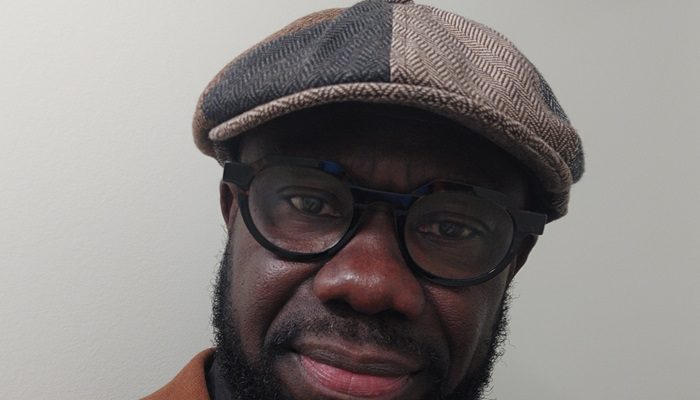With honour culture, Mahama wouldn’t need appointee Code
Dr Esi Ansah was the first person to tell me about the honor culture. At Ashesi University where she teaches, the honor code is practised during semester examinations.
That means there are no invigilators or supervisors when students sit and write tests in large lecture halls.
The university authorities confidently look away and drink tea or eat waakye in leisure, believing that their students will not cheat in the examinations.
Those students, some as young as 18 and from different countries, have been socialized and taught to grow organically into responsible human beings who can afford not to act silly or steal when nobody is watching.
Deadlines and Lifelines
I have not heard from Dr Ansah again since 2019 until January this year when President Mahama plucked her from the Ashesi classroom to serve on the constitutional review committee–alongside my best professor of all time, Kwame Karikari, and others.
The people serving on the committee are fine materials respected for their expertise in their fields of endeavour, but also valued for their content of character. They are deemed to have an honour culture.
Last week when President Mahama launched a code of conduct for his appointees, Ghanaians failed to appreciate the subtext of that communication.
The occasion was colourful, almost surreal, but the President would have wished he didn’t need to remind his appointees to live right and conduct themselves to reflect the values, hopes, dreams of Ghanaians.
What are those values and dreams, anyway? Dreams of getting rich quickly while sacrificing every good value in our culture on the altar of opportunism and sheer greed?
Hopes of peddling influence to benefit ourselves and family, instead of sharing with everybody? Hopes of killing to buy power?
Not quite his style, President Mahama sounded quite threatening while launching the code of conduct, promising to punish appointees who go against the provisions.
The president also gave an angry ultimatum to appointees who had not declared their assets, assuring that in addition to forfeiting four months of their salary as punishment, they will also be dismissed after the expiration of the deadline.
According to The Fourth Estate, some 55 appointees of the President had not declared their assets, eight of them being ministers or deputy ministers.
The Style is Mahama
After the ceremony at the Jubilee House, I sent text messages to friends and family serving in various capacities in the Mahama government, to urge them to send their asset declaration packages to the Chief of Staff, to save their positions.
I jokingly asked one of them to swap his assets with my liabilities if he had nothing to declare.
Thankfully, they had all declared their assets. To set the tone for a transparent and accountable government, the President had already declared his assets publicly in February.
In addition to donating six months of his salary to the Ghana Medical Trust Fund (Mahama Cares), he also quickly deposited two beautiful personal car gifts into the presidential vehicle fleet. This is the new Mahama.
The style is the man. That is to say, our viewpoints, values, and expectations shine through our personalities and influence the way we work with people.
Is being ‘hard’ and ‘unyielding’ President Mahama’s style?
From his days as a Deputy Communications Minister and Member of Parliament, to Vice-President and his first Presidential term, we know John Dramani Mahama as a gentleman’s gentleman whose non-confrontational and ‘sweet’ style appealed to many Ghanaians.
When years ago he was voted Best Minister in non-scientific surveys, Ghanaians loved the smart but unassuming man who would gladly attend your baby’s birthday party if you invited him, just as they admired him for always being on top of his brief.
Atuguba on ministerial role
We have never seen in John Mahama a leader who works with ultimatums.
That is not his style. Retired Supreme Court Judge, William Atuguba, finds President Mahama’s new punitive style quite “mechanical”.
He explains that Ministers have a lot on their plate and overwork themselves to settle into the job.
From one meeting to another while honouring other unrelated but important social obligations, a newly appointed Minister might delay completing an asset declaration form–not because it is too tasking or not crucial to the role, but because there is hardly time to spend on things that do not impact their mandate directly, such as counting the number of houses and television sets an appointee had prior to taking up the appointment.
It is clear that President Mahama intends to amend his ‘sweet’ and ‘human’ style for a ‘hard’ and ‘uncompromising’ approach–in furtherance of his legacy presidency.
However, we do not expect the sweet person we know to suddenly transmogrify into an emperor we do not know.
It may sound progressive that the salaries of defaulting appointees are going to add to a health fund.
We should also have the compunction to forgive if any of those 55 appointees find unapproved routes to go through four months without a salary.
How will they pay tithe to their churches?
The President expects his appointees to pass this big test.
This, incidentally, is also where our values, hopes, and dreams as a people will be tested.
If Ghanaians lived in a culture where honour is a way of life, we expect our politicians to do the right thing, even when there are no rules or incentives.
Even with a Code of Conduct monitored from the Presidency, we cannot assure ourselves that we can live above reproach. Unfortunately, this is what it means to be Ghanaian.
Tissues Of The Issues
bigfrontiers@gmail.com
Kwesi Tawiah-Benjamin
Ottawa, Canada
- Monday, May 12, 2025 Newspaper Headlines - 12 May 2025
- With honour culture, Mahama wouldn’t need appointee Code - 12 May 2025
- Dollar role under pressure from portfolio rebalancing - 11 May 2025




